Disrupting for Good: AI, ...
Online Conference
28 Jan 2026 / 29 Jan 2026 read more


Francesco Alberti
Professor at the Department of Architecture (DiDA), University of Florence, Florence Italy.
Conference Coordinator
[email protected]
(+20) 3 5763827 | (+20) 3 5763828
(+20)1000028021
Subscribe to our newsletter
The Tenth Edition of the International Conference on “Urban Planning and Architectural Design for Sustainable Development” (UPADSD)
The tenth edition of the International Conference on Urban Planning and Architectural Design for Sustainable Development (UPADSD) was held from October 21st to 23rd in Florence, Italy, in collaboration with the University of Florence. The event adopted a hybrid format, welcoming both onsite and virtual participation from around the world.
Organized by IEREK, the conference served as a vital platform for knowledge exchange and research collaboration, bringing together architects, environmentalists, engineers, academics, and students to engage in a global dialogue on the future of sustainable urban development. Its primary goal was to promote deeper understanding and practical approaches toward sustainability in urban planning and architectural design.
The sessions covered a wide range of topics essential to advancing sustainable cities and built environments, including:
Day 1:
Welcoming Session:

Opening Ceremony
Short welcoming remarks were also delivered by distinguished speakers, including:
Plenary Sessions
The Plenary Session opened with an insightful keynote address delivered by Prof. Effrosyni Giama, Associate Professor at the Energy Process Equipment Design Laboratory, Aristotle University of Thessaloniki. Her presentation, titled “Redefining the Built Environment: Pathways, Challenges, and Solutions,” explored innovative approaches to sustainability, addressing both the opportunities and challenges in transforming the built environment for a more sustainable future.

Parallel Sessions
Following the keynote presentation, the conference proceeded with three parallel sessions, each focusing on a key theme within the field of sustainable urban development. Throughout the sessions, numerous authors presented their research both onsite and online, engaging in interactive discussions with participants.
Book Presentation
In collaboration with the PhD Program in Sustainability and Innovation for the Design of the Built Environment and Product System, University of Florence, a special book presentation session was held featuring the authors of “Design in the Anthropocene: Sun, Water and Soil.”
The presentation was led by Michael Maks Davis, Lizeth Lozano, Adriana Mejía, and Jaire Cagigal, and published by Editorial Pontificia Universidad Católica del Ecuador.
This session provided valuable insights into the book’s exploration of sustainable design principles in the context of the Anthropocene era, emphasizing the intricate relationships between natural resources, architectural practice, and environmental responsibility.
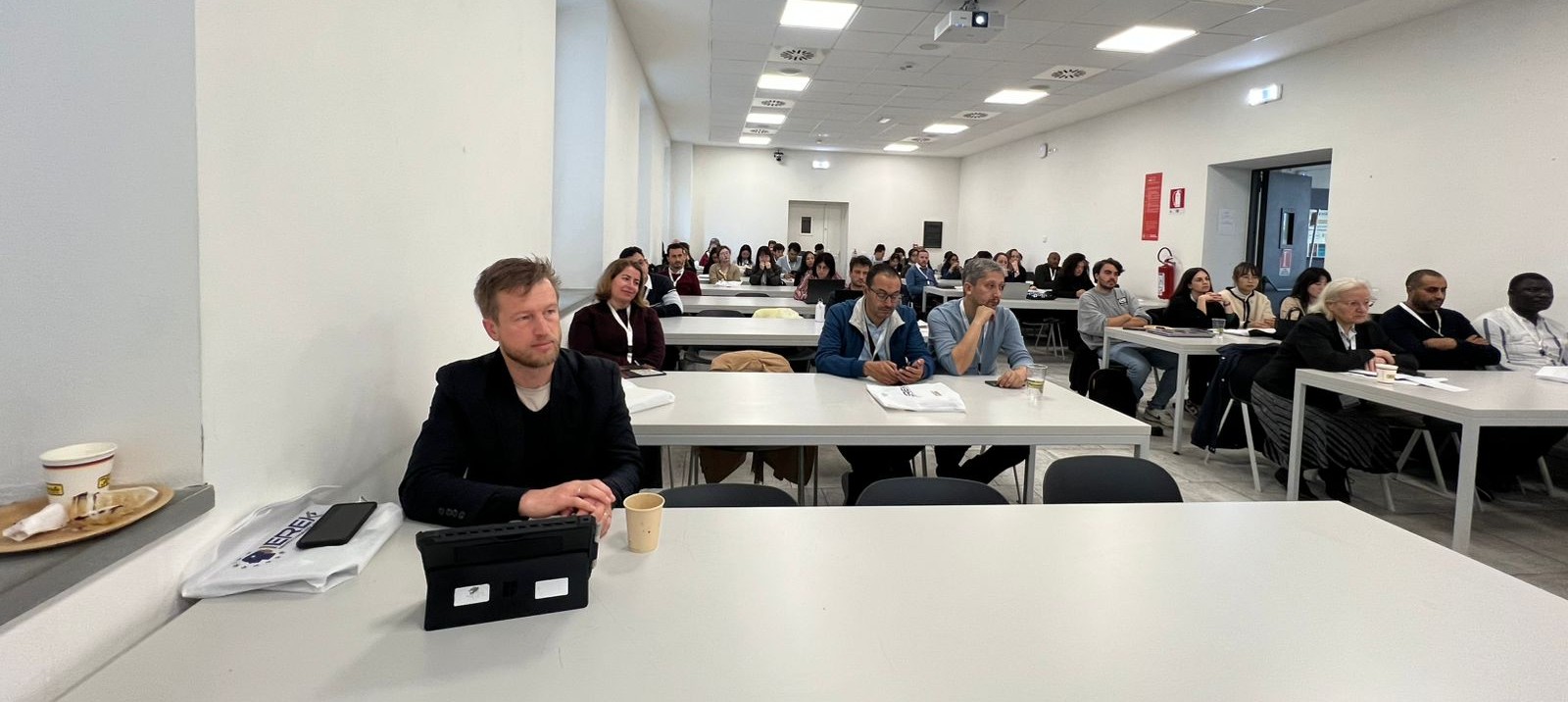
Day 2:
The second day of the conference began with online registration, followed by an engaging keynote speech delivered by Prof. Miguel Amado, Full Professor at the Instituto Superior Técnico, University of Lisbon.
His presentation, titled “Planning the Sustainable City – Decarbonizing the Current City to Build the Future Sustainable City,” explored strategic approaches to transforming existing urban environments into low-carbon, sustainable cities. Prof. Amado highlighted the importance of integrated planning, energy efficiency, and community engagement in achieving long-term urban sustainability.
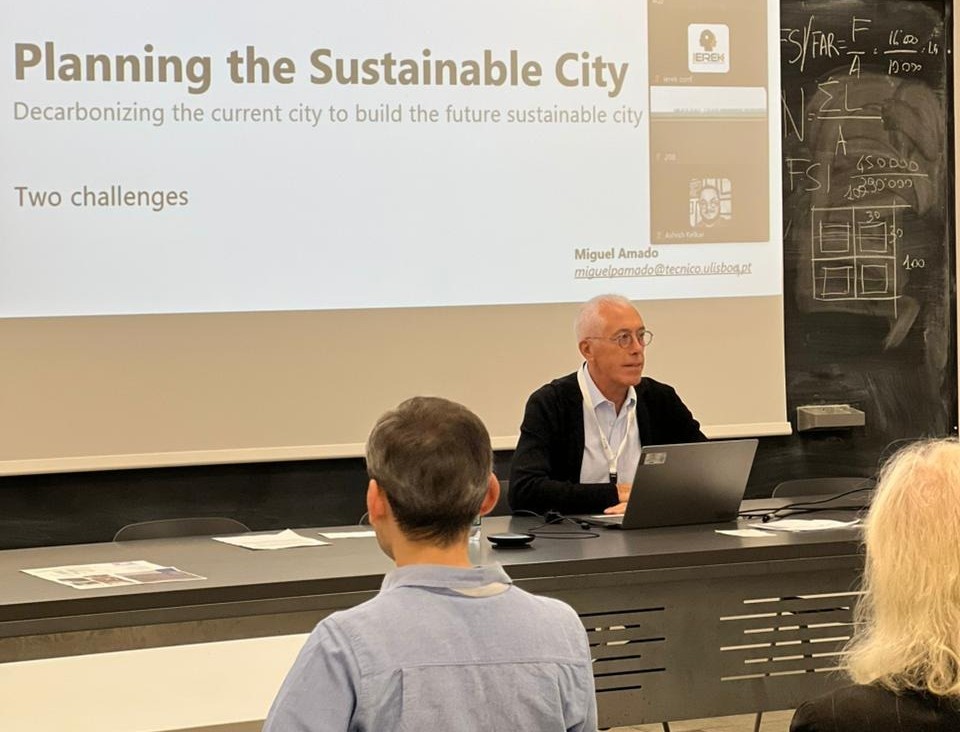
Parallel Sessions (Day Two)
Following the keynote speech, the conference continued with six parallel sessions.
Throughout these sessions, participants presented their research and engaged in insightful discussions, exploring innovative strategies and tools for achieving resilient, inclusive, and technologically advanced urban environments.
The third and final day of the conference featured a guided tour titled “The Reuse of Old Monasteries in Florence: A Trip Between Past, Present, and Future.”
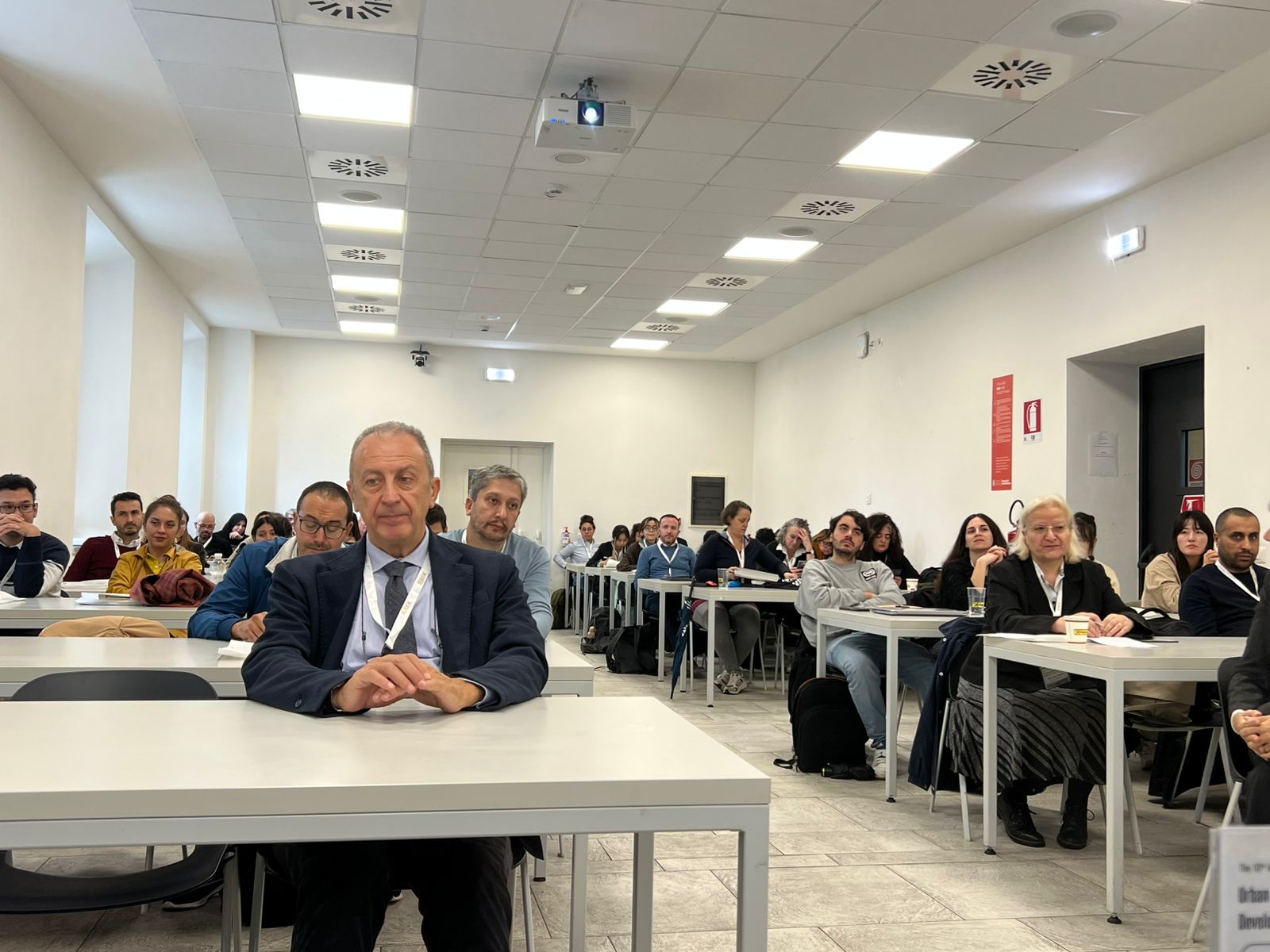
In regions where threats are prevalent, a new wave of urbanization is emerging, bringing with it new potential for resilient investment. The risk of disaster, poverty, and population density are all rising in urban areas. Urbanization -especially rapid and poorly planned- occurring in an environment of widespread poverty, can create risk due to its expanding rate and increase in population density. In many cities, areas of high-risk exposure are shown to overlap with growing populations and economic activity. Over the years, urban planning has taken a technical and political role in ensuring the well-being of a city’s residents. As of the late 20th century, as economic and environmental crises began to emerge because of previous models of urban planning, the welfare of the public has become the main concern for urban planners. Urban planners try to keep the balance between it and maintaining sustainability standards. Necessities like water and air, along with the infrastructure of an urban area, including transportation, communication, and accessibility are a few of the main concerns of urban planners. Urban planning goes hand in hand with architectural design, for they both have to work to protect a living space from unforeseen dangers and provide necessities like infrastructure related to public transportation, open spaces, housing developments, community organization, food security, nearby amenities, and numerous other things. In the “Urban Planning & Architectural Design for Sustainable Development” we’re planning to tie urban planning and architectural design together, and discuss how they both contribute to the concept of sustainable development. Sustainable development is a principle aiming to fulfill human development objectives while preserving the natural system's ability to offer essential natural resources and ecosystem services to humans.
Scope:
In the 10th edition of its international conference titled “Urban Planning & Architectural Design for Sustainable Development (UPADSD),” IEREK plans to continue the conversation that ties urban planning and architectural design to reach the common goal of sustainable development. The conference will discuss topics such as strategic urban planning, which requires setting ambitious goals and determining desired areas of city growth, as well as sustainable architecture and development. On the topic of sustainable architecture, the idea of its synonymous term green or environmental architecture will be discussed, as green architecture in itself is a challenge for every architect. Green architecture’s main goal is producing smart designs and using available technologies, ensuring that these produced structures emit minimal harm to both the ecosystem and the community. The end goal of green architecture is to fulfill the civilians’ current demands without risking the capacity of future generations to fulfill their own needs and that summarizes the purpose of urban planning.
Statement of purpose:
The intended outcome of the “Urban Planning & Architectural Design for Sustainable Development” conference is a community where resources and living conditions satisfy human needs without jeopardizing the stability and integrity of the planet. Our conference aims to bring together a group of professionals and industry pioneers, whose main goal is sustainable development. The goal of sustainable development is to strike a balance between social progress, environmental preservation, and economic growth. Through fruitful discussions, the objective of the conference is to enrich the minds of everyone present. Knowledge sharing and discussion are among the most important concepts the “Urban Planning & Architectural Design for Sustainable Development” conference tries to embed.
| Title | Date |
|---|---|
| Abstract Submission Deadline | 30 Aug 2025 |
| Last Notification for Abstract Acceptance & Approval to present | 5 Sep 2025 |
| Letter of Visa (for delegates who need visa entry) Payment required | 10 Aug 2025 |
| Early Payment Deadline | 10 Jun 2025 |
| Regular Payment Deadline | 15 Sep 2025 |
| Late Payment Deadline | 22 Sep 2025 |
| Extended Abstract / full Paper Submission Deadline | 20 Sept 2025 |
| Notification of acceptance/ rejection of submitted extended abstract/ full paper | 30 Sept 2025 |
| Conference Program | 07 Oct 2025 |
| Conference Launch | 21 Oct 2025 |
Sustainable urban design integrates ecological, social, and economic principles to create livable, efficient, and resilient spaces. It focuses on minimizing environmental impact through innovative strategies like green roofs and mixed-use developments. This approach ensures buildings are resource-efficient and environmentally responsible, blending ecological considerations into aesthetics and functionality while fostering connections between the built environment and nature.
Transportation planning focuses on creating efficient, accessible, and eco-friendly transit systems. It reduces reliance on cars, enhances public transit, and promotes walking and cycling. Sustainable transportation integrates land use with mobility solutions to achieve environmental and social benefits.
Land use and zoning regulations dictate how land can be used, influencing urban development patterns. These regulations aim to separate incompatible uses while promoting sustainable practices, such as mixed-use development and preserving green spaces.
Technological advancements enhance urban planning through data analytics, geographic information systems (GIS), and smart city technologies. These tools improve decision-making, streamline processes, and foster community engagement.
Effective water management is vital for sustainable urban environments. It involves strategies for conserving water, managing stormwater, and ensuring equitable access to clean water. Innovative practices enhance resilience against water scarcity and flooding by minimizing water use and promoting efficient management in buildings and landscapes.
Energy efficiency in urban areas focuses on reducing energy consumption while maintaining comfort and productivity. It emphasizes adopting renewable energy sources, energy-efficient building designs, and sustainable transportation systems to lower carbon footprints.
Waste management strategies focus on minimizing waste generation, promoting recycling, and fostering composting initiatives. The circular economy emphasizes resource recovery, sustainable materials management, and reducing landfill reliance to lower environmental impact.
Climate resilience involves preparing urban areas for climate change impacts through adaptive strategies. This includes enhancing infrastructure, protecting ecosystems, and fostering community awareness to mitigate risks and adapt to changing conditions. Resilient architecture ensures buildings withstand and adapt to environmental changes and disasters.
The vision for future urban environments emphasizes creating equitable, sustainable, and innovative cities. It includes strategies to enhance quality of life, reduce environmental impact, and promote community engagement in urban development.
Advancements in construction methods significantly contribute to sustainability by reducing waste, improving energy efficiency, and maintaining structural integrity. Selecting eco-friendly materials also minimizes environmental impact, enhancing durability and energy performance in building projects.
Building facades play a critical role in energy efficiency and aesthetics. This topic explores designing facades that optimize natural light, improve thermal performance, and reduce energy consumption while maintaining visual appeal.
Creating healthy indoor environments enhances occupants' well-being. This topic addresses design strategies to improve air quality, natural lighting, and acoustics, ensuring better quality of life for users.
Integrating smart technologies in architecture and urban planning enhances resource efficiency and sustainability. Digital tools, AI, and IoT applications enable optimized building performance and informed decision-making.
Lifecycle analysis (LCA) in architectural design assesses the environmental impact of a building throughout its lifecycle—from material extraction and construction to operation, maintenance, and eventual demolition. This approach helps optimize resource efficiency and minimize environmental harm.
Art and culture play a significant role in shaping the identity of urban spaces and architectural designs. This topic explores the integration of artistic elements and cultural narratives into cityscapes and building designs to foster a sense of place, community engagement, and cultural appreciation. Incorporating local art, cultural motifs, and traditional crafts can enhance the aesthetic and emotional appeal of urban and architectural landscapes, making them more vibrant and meaningful.
The registration fee does not cover accommodation or travel expenses. A list of accommodation options can be suggested by our team if available. Please contact [email protected] for inquiries.
We recommend that all authors take advantage of the benefits that IEREK offers, including various attendance types, publishing opportunities, and opportunities for discounts and waivers.
We are pleased to inform all applicants that they can use their previous publications to register for an IEREK membership, which offers a special discount.
IEREK offers a special discount to applicants from collaborative universities that have signed an MoU with IEREK to host or co-host one of its conferences.
IEREK also provides special discounts to authors from low and medium-income countries.
The disclosed fees are for the conference participation (Publication is free of charge, but only the conference participants can be considered for publishing in the conference proceedings).
Some of the disclosed conference fees may vary depending on the book series and/or journal(s) presented as a publication outlet, as we encourage submission to newly founded book series and/or journal(s) by presenting a discounted rate for conferences’ fees
IEREK offers many alternative venues for publication. All accepted submissions to the conference, after a rigorous double-blinded peer-review process by the respective and highly-distinguished Editorial Board, will be published through one of the following venues:
Selected papers (according to the preference of the author) will be published in one of the Scopus-indexed or Web of Science-indexed book series or through related journal special issues. See the publishing opportunities section.
Accepted papers (according to the preference of the author) will be published through the Springer book series or through a special issue in one of the IEREK press open-access Journals.
IEREK offers many types of registrations that are diverse in registration fees; applicants can choose the type they are familiar with as follows:
Participants who are PhD holders, post-doctoral researchers, and universities’ affiliated professors and experts in the field.
Must provide proof of enrollment in a university by providing an enrollment certificate and/or a valid university ID (with issue/expiry date) etc.
Participants who are not affiliated with universities such as practitioners, policymakers, entrepreneurs, etc.
Have access to the event to enjoy the discussions, coffee breaks, and lunch as a co-author or audience.
An author may need to attend the conference for presentation only to present a research idea without publication or full paper submission; the fee in this case will be decreased.
| Type of Registration | Early Payment Deadline 10 Jun 2025 |
Regular Payment Deadline 15 Sep 2025 |
Late Payment Deadline 22 Sep 2025 |
|---|---|---|---|
| Scopus indexed-ASTI Book by Springer or SUCI Book by Springer | |||
| Student | 350 € | 400 € | 450 € |
| Academic | 400 € | 450 € | 500 € |
| Professional | 450 € | 500 € | 550 € |
| Co-author/ Audience | 200 € | 250 € | 300 € |
| SLNR Book by Springer | |||
| Student | 300 € | 350 € | 400 € |
| Academic | |||
| Professional | |||
| Co-author/ Audience | 200 € | 250 € | 300 € |
| Open Access IEREK Press Journals | |||
| Student | 250 € | 300 € | 350 € |
| Academic | 300 € | 350 € | 400 € |
| Professional | 350 € | 400 € | 450 € |
| Co-author/ Audience | 200 € | 250 € | 300 € |
IEREK offers various types of participation. Applicants can apply for in-person attendance to benefit fully from conference discussions and knowledge exchange.
IEREK also offers virtual attendance for authors to present their research papers online; however, we strongly encourage all applicants to attend the conference in person.
Type 1:
Through IEREK – Springer Nature Interdisciplinary book series “Advances in Science, Technology, and Innovation” (ASTI). See previous publication here.
Type 2:
Through IEREK – Springer Nature Interdisciplinary book series “Sustainable Landscape Planning, and Natural Resources Management” (SLNR). See previous publication here.
The physical fee covers:
* Each research paper should have one main author who should pay the full fee (Author fees) regardless of attendance. Co-authors, each, have their fees to pay to attend the event. This applies to online attendance as well as physical attendance.
* A research paper fee allows only one author, whether main or co-author, to attend the conference and receive only one conference kit. Extras can be requested for an additional fee.
| Type of Registration | Early Payment Deadline 10 Jun 2025 |
Regular Payment Deadline 15 Sep 2025 |
Late Payment Deadline 22 Sep 2025 |
|---|---|---|---|
| Scopus indexed-ASTI Book by Springer or SUCI Book by Springer | |||
| Student | 300 € | 350 € | 400 € |
| Academic | 350 € | 400 € | 450 € |
| Professional | 400 € | 450 € | 500 € |
| Co-author/ Audience | 100 € | 150 € | 200 € |
| SLNR Book by Springer | |||
| Student | 250 € | 300 € | 350 € |
| Academic | |||
| Professional | |||
| Co-author/ Audience | 100 € | 150 € | 200 € |
| Open Access IEREK Press Journals | |||
| Student | 200 € | 250 € | 300 € |
| Academic | 250 € | 300 € | 350 € |
| Professional | 300 € | 350 € | 400 € |
| Co-author/ Audience | 100 € | 150 € | 200 € |
IEREK offers virtual attendance, providing authors with a unique link to join the conference sessions and present their papers as per the announced program.
IEREK is dedicated to optimizing the benefits for each delegate so, similar to physical attendance, when it comes to virtual attendance IEREK also provides two venues for publication, which are:
Type 3:
Online attendance + Publication through Scopus and Web of Science indexation Through IEREK – Springer Nature Interdisciplinary book series “Advances in Science, Technology, and Innovation” ASTI, see previous publications here.
Online attendance + Publication through Scopus, Web of Science (SCImago), EI Compendex, zbMATH indexation Through Springer Nature Interdisciplinary book series, “Sustainable Civil Infrastructure” see previous publication here.
Type 4:
Online attendance + Publication through Springer Nature's new book series (to be indexed in Scopus soon). Through IEREK – Springer Nature Interdisciplinary book series” Sustainable Landscape Planning, and Natural Resources Management” SLNR.
Online attendance + Publication through Open-access IEREK press Journals, (to be indexed soon in Web of Science and afterward in Scopus).
The online fee covers:
* Each research paper should have one main author who should pay the full fee (Author fees) regardless of attendance.
* Co-authors, each, have their fees to pay to attend the event. This applies to online attendance as well as physical attendance.
* Participants can use only one type of discount opportunity, which meets their preferences.
* Authors should contact the conference manager through this email [email protected] to consider the discount and waiving for all the above cases so that the conference manager can provide an exclusive invoice for each case.
| Afghanistan, Algeria, Angola, Bangladesh, Benin, Bhutan, Bolivia, Burkina Faso, Burundi, Cabo Verde, Cambodia, Cameroon, Central African Republic, Chad, Comoros, Congo, Congo Dem. Rep., Côte d'Ivoire, Djibouti, Egypt, Eritrea, Eswatini, Ethiopia, Gambia, Ghana, Guinea, Guinea-Bissau, Haiti, Honduras, India, Iran, Jordan, Kenya, Kiribati, Kyrgyz Republic, Lao PDR, Lebanon, Lesotho, Liberia, Madagascar, Malawi, Mali, Mauritania, Micronesia, Mongolia, Morocco, Mozambique, Myanmar, Nepal, Nicaragua, Niger, Nigeria, Pakistan, Papua New Guinea, Philippines, Rwanda, Samoa, São Tomé and Principe, Senegal, Sierra Leone, Solomon Islands, Somalia, South Sudan, Sri Lanka, Sudan, Syria, Tajikistan, Tanzania, Timor-Leste, Togo, Tunisia, Uganda, Ukraine, Uzbekistan, Vanuatu, Vietnam, Yemen, Zambia, Zimbabwe |
iDirect is a new and efficient platform that allows direct submissions of research papers across various fields of science. iDirect accepts and covers all fields of science, not only those related to a particular conference. Individual authors are encouraged to submit their research discussing new ideas and presenting solutions to everyday problems that fall under numerous scientific themes. The iDirect platform is integrated into the peer review system for online conferences. You can publish your work through iDirect without the need to attend the conference or adhere to any submission deadlines. iDirect accepts a wide range of disciplines, eliminating the need to align with the conference's specific theme or scope. Based on the scope of your research, we will identify the most relevant proceedings for publication. The editor will schedule a discussion with you to review your presentation before proceeding to the peer-review process. Learn more here!
IEREK puts a lot of effort into expediting the peer review process to publish articles as quickly as possible. This requires prompt responses from all authors to the editors' comments, if any. Your swift response is highly appreciated to advance the production process and get your articles online. We prioritize the first author to respond as per our formula. The conference proceedings will be divided into multiple books, with the first one scheduled for publication within 6 months after the conference date. We encourage all authors to aim for publication in the first release.
For participants who need Entry Visas to the country where the conference will be held, IEREK will issue the corresponding invitation letter for accepted applicants to facilitate visa issuance. Please notice that we will attempt to assist you in obtaining a visa but the responsibility is yours and the decision rests solely with the appropriate Embassy. For the requirements of issuing a visa letter please read more here!

All accepted submissions to the conference, after a rigorous double-blinded peer-review process by the respective Editorial Board, will be published in one of the following:
Advances in Science, Technology and Innovation (ASTI), an IEREK interdisciplinary book series published by Springer Nature. (SCOPUS indexed)
Publisher: Springer Nature (IEREK Interdisciplinary book series)
Indexing: SCOPUS indexed; some titles in Web of Science (ISI)
Focus: Emerging research in science, technology, and innovation for sustainable development, addressing UN SDGs.
Publisher: Springer (Peer-reviewed book series)
Indexing: EI Compendex, SCImago, SCOPUS, zbMATH
Focus: Sustainable engineering materials and designs for civil infrastructures, addressing impacts of weather extremes and improving well-being.
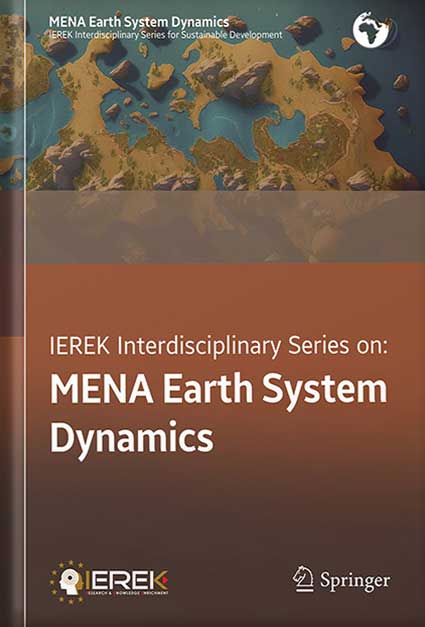
Focus: Environmental and developmental challenges in the MENA region.
Key Areas: Earth Systems Science, Geotechnics, and Geoinformatics specific to MENA.
Goal: Publish scientific breakthroughs and innovative solutions for a sustainable MENA Future.
Publisher: Springer (Peer-reviewed book series)
Focus: Groundbreaking research at the intersection of sustainable landscape planning and natural resources management.
Key Areas: Landscape ecology, green urbanism, urban regeneration, land restoration, energy management, nature conservation, geosciences, civil engineering, and water management.
Internationally peer-reviewed, open access journals published by IEREK Press. Covering a wide range of disciplines including sustainability, architecture, engineering, and environmental sciences.
Journal on:

ORCID, which stands for Open Researcher and Contributor ID, is a global, not-for-profit organization that aims to provide unique identifiers for authors, researchers, and scholars. ORCiD effectively eliminates duplication and errors regarding author names, affiliations, previous works, and all related academic data.
IEREK is a proud member of ORCiD, and we contribute directly to their initiative of clear and identifiable markers for researchers and scholars. As the first Egyptian partner to ORCiD in the organization’s history, we strongly believe that by utilizing ORCiD’s database and verification services, we become one step closer to achieving an accurate, and identifiable academic landscape.
We encourage our authors to input their ORCiD ID when registering for one of our conferences, submitting an abstract, or a full paper. By doing so, you directly link your research to your identity and affiliation and can showcase your various academic efforts all in one place. By Registering your ORCiD ID, you also increase your works’ visibility and provide easy access to your entire library of research and academic activity.
Click here to learn more about ORCiD, and here to register your ORCiD ID for free.
Attending a conference dramatically enhances both your professional and personal development. They help you sharpen the saw, meet and converse with industry experts, expand your resources and grow your professional network. IEREK Conference will help you:
1. Open Discussions: We bring together leading academic scientists, from different universities and countries, to exchange and share their experiences and research results.
2. Internationally Accredited Certificate: The participants are granted internationally recognized certificates acknowledged by IEREK, the University, and Partnering Organizations.
3. Publication: Selected high-quality manuscripts will be published, after peer review, in the Advances in Science, Technology & Innovation (ASTI) book series by Springer or by IEREK Press Journals, both of which are indexed in world-renowned databases.
4. Research Technologies: Conferences can expand your resources by providing a great opportunity to promote gathered information on new technologies related to your research.
5. Networking: You can engage with industry experts to discuss with them the very latest research projects they could be working on and increase your chances of collaboration in future projects.
6. Academic Reputation: Attending many conferences will make you a known figure in academic circles and an active member of the academic community.
7. Conference Abstracts Material: Delegates will receive the conference Abstracts book in a digital format.
credit is fraudulent. The Reviewing committee and IEREK employees have the authority to reject a paper during its reviewing process, on the basis of the paper being subjected to either minor or major plagiarism.
Authors must refer to, and abide by, the following instructions in submitting their abstracts/ papers:
This is not a prerequisite for presenting your work at the conference. Meaning, you can present your submitted abstract without intending to publish your work.
This process can only be initiated after payment completion and confirmation:
Registration
To help the organizers plan for inter-disciplinary dialogue, participants are requested to choose from the conference themes/ Topics upon registration.
They must also refer to, and abide by, the following instructions in registering and/ or submitting their contributions:
NOTE: If you are contributing as an Author of a submitted abstract (for publishing consideration and/or presentation), and regardless of attendance, the fee for the registration is the same. See and Conference Fees for more information.
Types of Participation
1. Attend/ Present in-person or Online and Publish in indexed Conference proceedings
The conference offers a Physical attendance option for your convenience. That said, participants will have a chance to present their abstract/research, on campus, and have their work considered for publication in the ASTI Series by Springer as part of the conference proceedings.
See Author Instructions and Conference Fees for more information.
2. Non-presenting participant
Non-presenting participants may also wish to attend the conference as Audience Members or Co-authors contributing to an already submitted abstract/ paper. See Conference Fees for more information.
Notes to consider:
* Attendance online and in-person are possible upon confirmation with the conference secretariat/ coordinator at [email protected] and following Conference Fees covered.
* The participation fee is uninform for all options presented above.
* For participants wishing to attend in-person, a visa invitation letter will be provided upon request, for which case a copy of your passport will be required. The invitation letter can only be provided after acceptance and full payment.
* Before planning your trip, be sure to check travel restrictions to the conference’s hosting country. Visit travel information and restrictions, and send in your questions if you have any to the conference coordinator at the email [email protected]
|
Cancellation Policy |
Up to 60 days before the event |
Up to 50 days before the event |
Up to 40 days before the event |
39 days before the event |
|
Penalty |
20% |
50% |
70% |
100% |
EXCEPTION
A refund is not possible if
-An acceptance letter has been issued (Authors only)
-The proceedings of the event have been published (Authors only)
-A Visa invitation letter has been issued (All Participants)
Visa Rejection Cases
Reason and proof of rejection must be submitted. If the reason for rejection is due to an error on our part, the participant will be refunded their full fee with a deduction of a 20% administration fee.
Documents to be issued by IEREK to acquire a visa are as follows:
*Final Acceptance Letter (Authors only)
*Visa Invitation Letter
*Invoice/proof of payment
We encourage all authors and attendees to ensure their having acquired all documents (those applicable) mentioned.
If the reason for rejection is not related to any of the aforementioned and is an error on the participant’s part, the following will apply:
*Authors: may choose to let their co-author present his/her research on his/her behalf free of charge. If the author does not have a co-author, a member of the scientific committee shall present on the author’s behalf.
*Audience members/Registrants: will only be allowed to attend another similar event of their choosing that is organized by IEREK free of charge.
Florence is famous with the best-knowns sights in Italy that it would take weeks to see everything in it, also it is one of Europe’s most popular cities. It has many breathtaking views and tourist attractions from museums to churches and palaces.
The following are some suggestions of places to visit while you are in Florence, Italy:
1.The Cathedral of Santa Maria del Fiore and Piazza Duomo
Experience the awe-inspiring beauty of the Cathedral of Santa Maria del Fiore, nestled within the enchanting Piazza Duomo. This architectural marvel showcases the finest masterpieces of the Italian Renaissance, crafted by renowned artists such as Donatello, Giotto, Michelangelo, and Ghiberti. Admire the intricate inlaid marble exteriors, and step inside each building to marvel at the mesmerizing stained glass works of art.

Follow the path of the Arno River, a majestic watercourse that winds its way through Florence, contributing to the city's rich history and economy. As you traverse along its banks, you'll witness the river's vital role in shaping the city's morphology and urban development. The Arno River originates on Monte Falterona in the Casentino area of the Apennines, and initially takes a southward curve. The river turns to the west near Arezzo passing through Florence, Empoli and Pisa, flowing into the Tyrrhenian Sea at Marina di Pisa. With a length of 241 kilometres (150 mi), it is the largest river in the region. It has played an important role in the history and economy of Florence. The current morphology of the Arno River in Florence is heavily influenced by the urbanization of cities that develop along rivers.
Discover the engineering marvels of the retaining walls designed to protect nearby structures, and appreciate the ongoing efforts to preserve and stabilize the riverbanks. Learn about the Arno River's significance as a lifeline for the region of Tuscany.

Step into the breathtaking world of Santa Maria Novella, a captivating church renowned for its magnificent Gothic and Renaissance architecture. This prominent religious site, dating back to the 14th century, stands as a testament to Florence's cultural heritage. Marvel at the intricately detailed façade that reflects the church's rich history as the primary Dominican convent during the Renaissance. Delve into the depths of artistry as you explore the church's vast collection of artworks, including mesmerizing frescoes by masters such as Masaccio and Ghirlandaio

EDEmbark on this unforgettable journey through the heart of Florence, where the splendor of the Renaissance awaits at every turn. Let the city's artistic and cultural atmosphere captivate your senses and leave an indelible impression on your conference experience.
4.Uffizi Palace and Gallery
The gallery is one of the world’s top art museums that contains magnificent paintings from 14th to 16th centuries painters which changed the face of western art. Its collections are staggering in their quality and diversity. The building stretching along the river wasn’t only intended as a residence, but also as governmental offices and scientific studies. The octagonal Tribuna that is considered as one of its loveliest spaces, was commissioned to display the most prized jewels and paintings of Francesco I de' Medici.

Ponte Vecchio was built in 1345 and considered as the oldest bridge in Florence. The purpose of the bridge was to link the two sides of the Arno and the Medici with arches topped by a jumble of shops which is one of the city’s prettiest scenes. The shops became the home of Florence’s talented goldsmiths and a stroll across that show dazzling array of fine jewelry.

The University was established in 1321 by the Florentine republic, and now it develops cooperation with research institutions and academics from all over the world to promote scientific and cultural internationalization, and it became one of the privileged destinations for international researchers and students. Florence is considered as an important international historic and cultural center, famous for the best-known and magical sights in Italy like The Cathedral of Santa Maria del Fiore and Piazza Duomo.
Grand Amore Hotel & Spa-4 stars’ hotel
290 meter from University of Florence / 3 minutes by walking
Address: Via dei Servi, 38/A, 50122 Firenze FI, Italy
Phone: +39 055 035 1500
Location on map: Grand Amore Hotel
Hotel Panorama Artinside- 3 stars’ hotel
290 meter from University of Florence / 4 minutes by walking
Address: Via Camillo Cavour, 60, 50129 Firenze FI, Italy
Phone: +39 055 238 2043
Location on map: Hotel Panorama Artinside
350 meter from University of Florence / 4 minutes by walking
Address: Via Santa Reparata, 33, 50129 Firenze FI, Italy
Phone: +39 055 289433
Location on map: Hotel Venento
Hotel Athenaeum- 4 stars’ hotel
550 meter from University of Florence / 2 minutes by car
Address: Via Camillo Cavour, 88, 50129 Firenze FI, Italy
Phone: +39 055 589456
Location on map: Hotel Athenaeum
8.6 km from University of Florence / 22 minutes by car
Address: Via del Termine, 11, 50127 Firenze FI, Italy
Location on map: Florence Airport
Phone: +39 055 30615
Aeroporto Firenze “Regional airport”
7.9 km from University of Florence / 20 minutes by car
Address: Via S. Piero a Quaracchi, 50145 Firenze FI, Italy
Location on map: Aeroporto Firenze
Phone: +39 055 30615
Bologna Guglielmo Marconi Airport
106 km from University of Florence / 1 hr 20 minutes by car
Address: Via del Triumvirato, 84, 40132 Bologna BO, Italy
Location on map: Bologne Gugliemo Marconi Airport
Phone: +39 051 647 9615
85.3 km from University of Florence / 1 hr 12 minutes by car
Address: Piazzale D'ascanio, 1, 56121 Pisa PI, Italy
Location on map: Pisa International Airport
Phone: +39 050 849111
San Marco Rettorato
55 meter from University of Florence / 1 minutes by walking
Address: 50121 Florence, Metropolitan City of Florence, Italy
Location on map: San Marco Rettorato
Piazza Di San Marco
85 meter from University of Florence / 1 minutes by walking
Address: 50121 Florence, Metropolitan City of Florence, Italy
Location on map: Piazza Di San Marco
San Marco Chiesa
110 meter from University of Florence /1 minutes by walking
Address: 50121 Florence, Metropolitan City of Florence, Italy
Location on map: San Marco Chiesa
Museo Di San Marco
130 meter from University of Florence /2 minutes by walking
Address: 50121 Florence, Metropolitan City of Florence, Italy
Location on map: Museo Di San Marco

Miguel Amado is Associate Professor of Associate Professor with Habilitation in the DECivil – Dept. Civil Engineering, Architecture and Georesources of Instituto Superior Tecnico at Universidade de Lisboa where he holds the teaching of Design in Master and Doctoral Program in Architecture.
He is also Coordinator of GEOTPU – Research Group on Spatial, Regional and Urban Planning, an interdisciplinary research group with the focus on development; spatial and urban planning; architecture; sustainable construction; energy and sustainability, created in 2005 by he’s initiative. After receiving her PhD in Environmental Engineering in 2004 from the Universidade NOVA of Lisboa.
Miguel Amado obtained he early training in architecture (1989), UNESCO - Urban Centers (1996), urban planning and environment (1997) and Habilitation in Architecture (2015). Miguel Amado was recruited to the Dept. Civil Engineering, Architecture and Georesources of Instituto Superior Tecnico at the Universidade de Lisboa. He is author of three books - Planeamento Urbano Sustentavel (2004), Oeiras E-City (2014), Construção Sustentavel (2016), several books chapters and more than 90 scientific publications.
He as one patent and currently works in international projects in Europe, Africa and Asia continents. He is a member of the Standardization Technical Committees in Thermal buildings (CT 89 and CT151) and Sectoral Commission for Construction (CS / 10) Quality of the National Council for the standardization project. Since 2004 he has supervised 4 PhD students, 2 Pos-Doc researchers and more than 70 Master students. Miguel Amado Chairs the Fiscal Committee of the National Portugueses Architects Association and full member of CERIS – Civil Engineering Research and Innovation for Sustainability.

Prof. Effrosyni Giama is an Associate Professor at the Process Equipment Design Laboratory, School of Mechanical Engineering, Aristotle University of Thessaloniki (AUTH). She holds a PhD in Mechanical Engineering, specializing in the integrated energy and environmental evaluation of buildings. Her research focuses on energy and environmental management in buildings, life cycle and carbon footprint analysis, circular economy, and environmental economics. Prof. Giama has participated in over 30 research projects and published extensively in international journals and conferences.
She also teaches a wide range of courses on sustainable energy systems and environmental methodologies across several universities, including AUTH, the Open University of Cyprus, and the International Hellenic University.

Book presentation with the authors

Francesco Alberti is Associate Professor of Urban Planning and design at the Department of Architecture of the University of Florence, where he is currently in charge of the Laboratory of Urban Planning and Design at the 5-year Master's Degree Course in Architecture, and of the course “Smart City Planning” for the postgraduate programme “ABITA” (Bioecological Architecture and Technological Innovation for the Environment). In the same Department, he is the scientific coordinator of the research unit "SUP&R" (Sustainable Urban Projects & Research) and of the related university spin-off "Urban LIFE” (Urban Liveability & Innovation for Everyone). He is in charge of the role of Mobility manager for the University of Florence and a member of the University’s scientific team at the spoke “Urban Mobility” of the “Nation Centre on Sustainable Mobility”, established in 2022 by the Italian Government with special funds from the National Plan for Recovery and Resilience. As a member of the Italian National Institute of Urban Planning (INU - Istituto Nazionale di Urbanistica) he joined the National Commetees “Networks, Infrastructure and Innovation Policies” (2014-2016), “Urban Accessibility for Everyone” (2016-) and “Mobility, Infrastructure, and logistics” (2019-). From 2016 to 2022 he served as President of the Regional division of INU in Tuscany.

Paola Gallo teaches in the environmental design and architecture technology laboratories of DIDA. She participates in national research projects on an ongoing basis and over the years she has acquired considerable experience in the European context through participation in numerous research projects financed by the European Community in Research & Development. She specialises in passive solar systems in architecture, environmental design and energy conscious building design. In connection with this activity she has published several essays in Italy and abroad and organised many national and international conferences and exhibitions on renewable energy and sustainable architecture in collaboration with others. Furthermore, she is Scientific Manager of the ABITA Interuniversity Research Centre and coordinator of a second level Master’s Degree course on sustainable architecture.

Federico Camerin, city planner at the Università Iuav di Venezia (2014), was awarded in 2014-15 and 2016-17 with two fellow research grants at the same University. In 2020, he achieved a double degree of Doctor and Ph.D. awarded respectively by the Universidad de Valladolid (Spain) and Bauhaus-Universität Weimar (Germany) within the European Joint Doctorate “UrbanHist”. He was a post-doc fellow in Urban Planning at Iuav (2021) and Universidad de Valladolid (2022-24 ‘Margarita Salas’ and 2024-29 ‘Ramón y Cajal’ programmes). His research and working interests are spatial planning, planning history, urban governance, and urban regeneration.
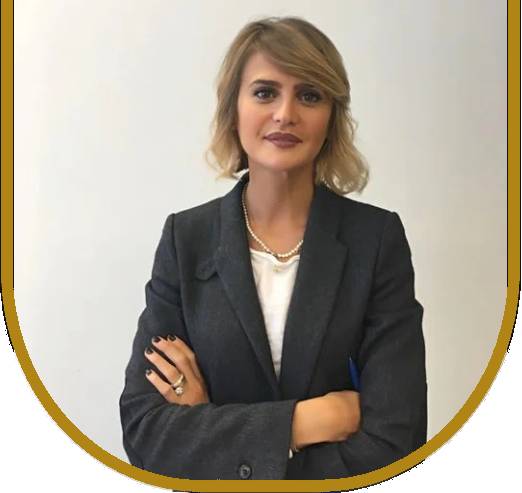

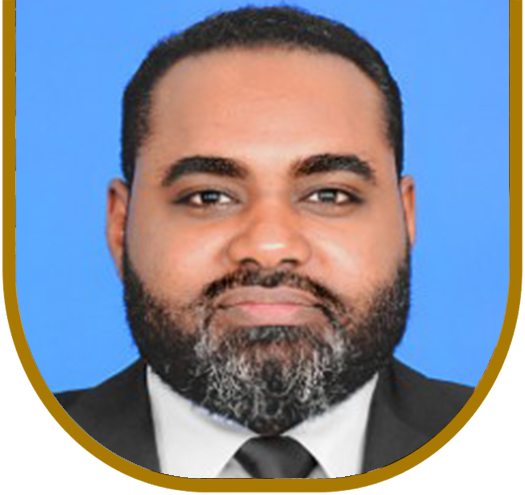

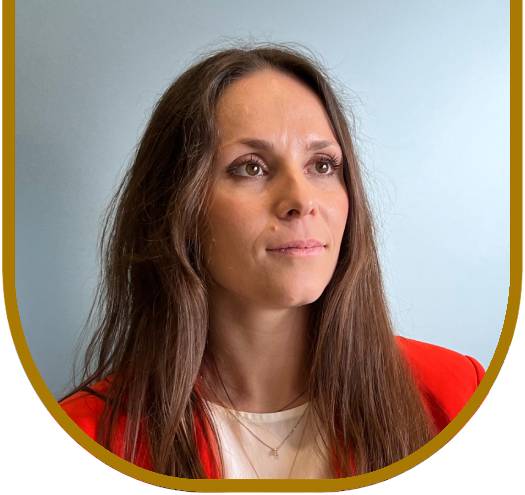


















For IEREK's Previous Publications, Please Click here
- Urban planning and Architectural Design for Sustainable Development (UPADSD) held in Lecce of Italy in October, 2015.

- Urban Planning and Architectural Design for Sustainable Development (UPADSD) – 2nd Edition held in Palermo Italy in October 2017.
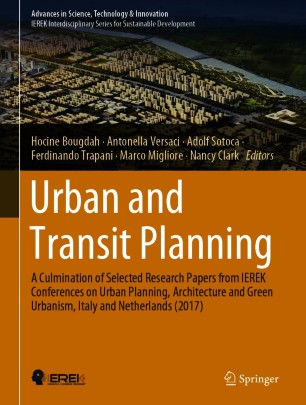

- Urban Planning and Architectural Design for Sustainable Development (UPADSD) – 3rd Edition held in Cairo, Egypt in December 2018.

- Urban Planning and Architectural Design for Sustainable Development (UPADSD) – 4th Edition (Online Conference) in November 2019.
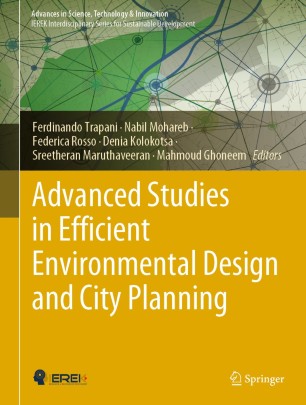
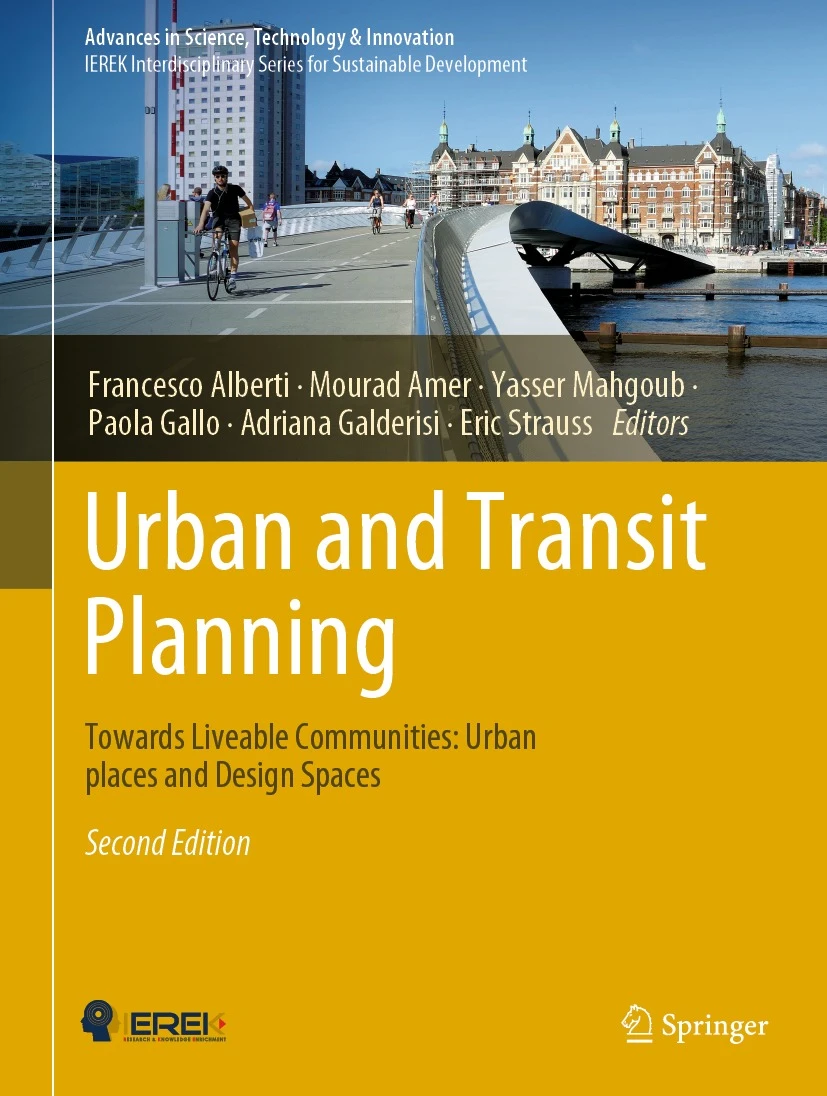



*IMPORTANT: Please note that minor changes could take place and the program be updated accordingly. All participants should regularly check the program until the event launch.
The print ISSN number of the International Conference on "Urban Planning & Architectural Design for Sustainable Development (UPADSD) " is 2636-3690
The online ISSN number of UPADSD conference is 2636-3704






















Francesco Alberti
Professor at the Department of Architecture (DiDA), University of Florence, Florence Italy.
Conference Coordinator
[email protected]
(+20) 3 5763827 | (+20) 3 5763828
(+20)1000028021
Subscribe to our newsletter
Join IEREK community